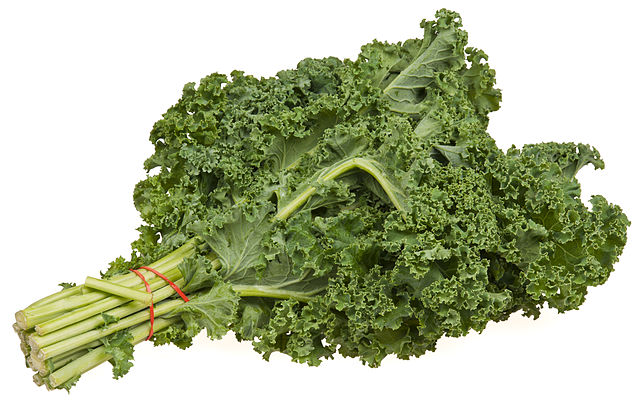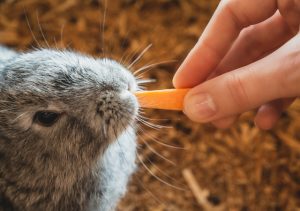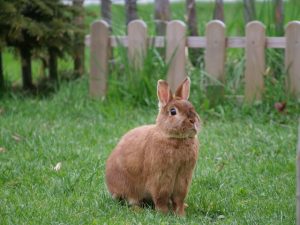Can rabbits eat kale, kale leaves, roots, or stalks?
If a short answer is required then, the answer is yes, rabbits can eat kale. However, the answer to that question may become a bit more complex when we think about it in a practical way. What's supposed to be the right quantity, frequency, quality, way of serving? What moderation really means?
Of course, veggies are good for rabbits and we recommend you feed it to your rabbit but you must respect some rules first.
I. Specialists cannot agree upon the real level of oxalates in kale. Kale is often described as a high-oxalate leafy vegetable. Actually, this is not the case. It's low in oxalates as recent studies may say. The U.S. Department of Agriculture says that 100 grams of kale contains only 20 milligrams of oxalic acid; in comparison with 100 grams of spinach that contains 970 milligrams of oxalates.
II. Kale is a pretty good snack, full of nutrients, that you can give to your rabbit every once in a while. However, it's important to remember to avoid feeding it every day. As you already know the best food for rabbit is fresh and high-quality hay accompanied by a bowl of fresh and clean water. You can read below in what combination.
III. Some rabbits may feel some sort of stomach distress (gas or other digestive problems). With time if your rabbit eats too much kale he can develop some kidneys problems, because of the kale's calcium content. However, adding a few leaves of kale to his daily portion of hay can improve your rabbit's health and also mood. Bringing variety to your rabbit's diet with a snack (and kale can be an awesome snack for your rabbit) will always be a great idea.
What is the best way to feed kale or other veggies?
You will never be mistaken with dark green lettuce, spinach or kale, and a herb (dill, mint, or another one that is accepted). Always feed new vegetables alone. Only after you are sure that he reacts well to that type of green you can mix it with others.
1. Vitamin A.
As your rabbit's health is very important choose greens that are higher in vitamin A, but lower in calcium and oxalates. Kale is also on the list of greens that are high in Vitamin A, along with Bell Pepper, Collards, Dandelion greens, or Endive. Read more about vitamin A, calcium, and oxalates in a rabbit’s diet.
2. Calcium.
Kale is on the list of greens that are high in calcium content. Not as rich as Mustard spinach or Collards that are 315 mg respectively 218 mg per 1 cup of serving, kale has a very satisfying amount of 94 mg per 1 cup of serving, in comparison with parsley that has 78 mg per 1 cup of serving.
Because kale contains a lot of nutrients but not so much calcium, it's a better choice. However, you should never exaggerate with feeding kale because it may still cause bladder sludge or kidney stones. What you can do is to rotate or combine these greens with others that are low in calcium. If you are not sure what is the best combination we encourage you to decide it with a veterinarian. Rabbits are different, as humans do too and they may have a different reaction to kale.
Other rules you should know while feeding kale
Wash well all vegetables you feed to your pet rabbit. Besides dirt, if not organic, they have pesticides and other chemicals at the surface. We recommend you buy organic whenever possible. Gardening is also a great option. Rabbit’s digestive system doesn't tolerate well pesticides.
The stems are higher in fiber than the rest of the plant. Try to cut them into smaller pieces to avoid your rabbit choking on them. The same with celery.
Never feed molded or deteriorated leaves of kale. You can do more harm than good. Rabbit's stomach is very sensitive to this kind of food.
Rabbits can eat only a few fruits (as a treat, up until 5% of the whole diet) and some vegetables (no more than 10% of the food he is having). Avoid dried fruits. Consult our search bar for a specific fruit or vegetable.
What about canned or cooked kale? For wild rabbits or baby rabbits?
Can rabbits eat canned/cooked kale?
Always is better raw than cooked. When cooked food will lose their fiber. They will gain a watery and soft texture that rabbit's digestive system will not tolerate well. Besides that canned kale has a lot of salt and maybe some preservatives. Always avoid it.
Can rabbits eat frozen kale?
We actually recommend frozen kale. Freezing kale seems to maintain a good texture. Avoid other frozen leafy greens because they loose their natural form while freezing. They have less fiber and a starchy and watery texture. If you have the possibilities you can plant your own veggies. If it's the cold season or you cannot buy the admitted greens for your rabbit, you can give him some frozen kale. If you don't have this either you can skip it for a few days. Water, hay, and a few high-fiber pellets will work just fine.
Can baby rabbits eat kale?
Never feed vegetables before two months old. You should also remember to introduce vegetables one at a time and always after two weeks of eating grass hay.
Can wild rabbits eat kale?
Yes, they can try, in small portions at the beginning. If they tolerate it well then you can feed it again but never more than what's permitted for domesticated rabbits.






